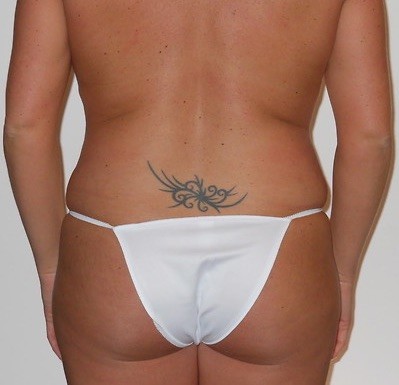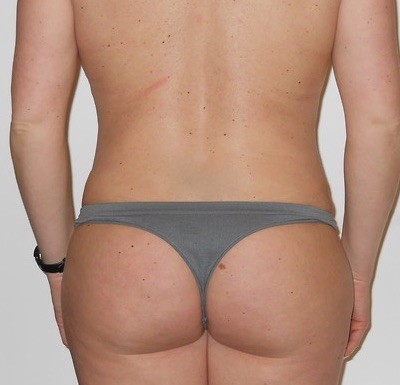
Actual patient: Facelift Plastic Surgery Before

Facelift Plastic Surgery After
…and cosmetic surgery is not plastic surgery!
It can be difficult in this modern day climate of heavy advertising, social media and internet searches for prospective cosmetic surgery patients to learn the truth about cosmetic procedures and the surgeons who perform them. Unfortunately, the online plethora of marketing, advertising and websites has muddied the waters about cosmetic surgery and unscrupulous groups and individuals have taken advantage of the flotsam and jetsam to advance their own agenda. It is disappointing to see, but the “turf battles” in healthcare and among physician specialties are often the nastiest and most intellectually dishonest encounters imaginable. The battles between surgical specialties that encompass esthetic/cosmetic surgery are no exception. This is especially evident in the attempt by some to equate plastic surgery and cosmetic surgery.
Cosmetic surgery
The truth is that no one specialty owns cosmetic surgery. Cosmetic surgery is recognized by the AMA (American Medical Association) as a separate and distinct specialty from plastic surgery. In fact, the nation’s largest cosmetic surgery group, the American Academy of Cosmetic Surgery (AACS) which is comprised of physicians from multiple specialties, including plastic surgery, has voting delegates in the AMA House of Delegates. Cosmetic surgery is the surgery of appearance. It is elective and focuses on the aesthetics of beauty.
Plastic surgery
Plastic surgery is primarily reconstructive in nature and was born out of the need to repair severe head and neck injuries during World War I. As there were no “plastic surgeons” at the time, the U.S. Surgeon General (William C. Gorgas) combined oral surgeons and general surgeons to form the Department of Oral and Plastic Surgery to treat these injured soldiers. Interestingly, Dr.’s Robert Ivy and Varaztad Kazanjian, who are considered the fathers of plastic surgery in the U.S. were originally oral surgeons. The prestigious American Association of Plastic Surgeons (AAPS), which limits its membership to only the most accomplished plastic surgeons in the country, was originally founded by oral surgeons and physicians and was called the American Society of Oral and Plastic Surgeons until 1931.

Actual patient: Buttocks Liposuction Before

Actual patient: Buttocks Liposuction After
Unfortunately, some (not all) organized plastic surgeons attempt to mislead the public about who is competent to perform cosmetic surgery and the most deceptive lies are those that contain some grains of truth. Plastic surgeons (like many other surgical specialists, including but not limited to, Otolaryngologists/ENT, Oral and Maxillofacial Surgeons, Dermatologists and Ophthalmologists) do learn cosmetic procedures during their residency. However, the Accreditation Council for Graduate Medical Education (ACGME) only recommends that residents in plastic surgery perform 110 cosmetic procedures to be considered adequately trained. These include ten breast augmentations, seven face lifts, eight blepharoplasties, six rhinoplasties, five abdominoplasties, ten liposuctions, and nine “other” cosmetic procedures.
I do not believe that number of procedures is enough to become truly efficient in the full scope of cosmetic surgery and in fact, most plastic surgery educators agree with me. This is exemplified in a 2008 article published in the Plastic and Reconstructive Surgery journal, where a survey of cosmetic surgery training in plastic surgery programs in the United States found that the majority of the plastic surgery program directors encouraged their residents to pursue some type of postgraduate cosmetic fellowship. There is no doubt that the residency experience pales in comparison to formal fellowship training in cosmetic/esthetic surgery.

Actual Patient: Tummy Tuck & Breast Augmentation Before

Tummy Tuck & Breast Augmentation After
Fellowship training is widely recognized as the highest level of training available after residency and denotes extraordinary commitment to that field of medicine or surgery. Personally, I was fortunate enough to perform over 1400 cosmetic surgeries during my accredited fellowship. Also, in contrast to many residency experiences, as the cosmetic surgical fellow, I was responsible for the patients’ from their initial consultation to their surgery and through their postoperative course. Unfortunately, many residents do not gain enough experience in the university setting to meet cosmetic surgery requirements and are sent out to private offices to “scrub in” on cosmetic cases to gain sufficient numbers. This means that many of the nuances of patient selection, treatment planning, informed consent, and management of postoperative complications are likely missed. That said, I have many plastic surgery colleagues who are very experienced in esthetic surgery and are excellent at it; but just having the designation “plastic surgeon” does not assure a patient of that surgeon’s proficiency in cosmetic surgery.
Dermatologists
Contemporary educators will freely admit that cosmetic surgery is a multi-specialty field that includes leaders and contributions from many surgical specialties. For instance, dermatologists pioneered laser surgery, chemical peels and invented tumescent liposuction. Oral and maxillofacial surgeons also made significant advances in aesthetic facial skeletal surgery and facial implants. Ophthalmologists have contributed many techniques for cosmetic eyelid surgery and cosmetic uses of botulinum toxin. Gynecologists have introduced or improved cosmetic vaginal surgery. ENT physicians have advanced the field of rhinoplasty and facelifting techniques on a continual basis. Plastic surgeons have made remarkable advancements in breast and body contouring procedures. The list goes on and anyone that disagrees with the fact that contemporary cosmetic surgery is a multi-specialty realm simply has their head in the sand or has intentions of secondary gain.
The real bottom line is that there is no residency for cosmetic surgery and in my opinion, the ideal surgeon is one who has completed a formal fellowship in cosmetic surgery, or has a vast amount of cosmetic surgical experience. This could be a surgeon or surgeons from a multitiude of specialty backgrounds. Although board certification is an indicator of basic surgical competency, it is only one component that should be considered when choosing a cosmetic surgeon. Depending on the community in which you live, the best person to perform your rhinoplasty may be an oral and maxillofacial surgeon or an ENT/Otolaryngologist and the best person to perform your liposuction procedure may be a board certified cosmetic surgeon or a general plastic surgeon.
Also, any honest and competent surgeon should be willing to discuss their actual training and experience in the procedure(s) considered and not just hide behind some board certification. Lastly, successful and accomplished surgeons seldom disparage their competition because they are: 1) confident in their own abilities, 2) are too busy with surgery to waste time belittling others, and 3) realize that their competition will not last long if they aren’t getting good results, and if they are, they should be respected as colleagues.
If you would like to learn more about cosmetic surgery in Huntsville, AL with Dr. Landon McLain, please visit our website at McLainsurgicalarts.com

